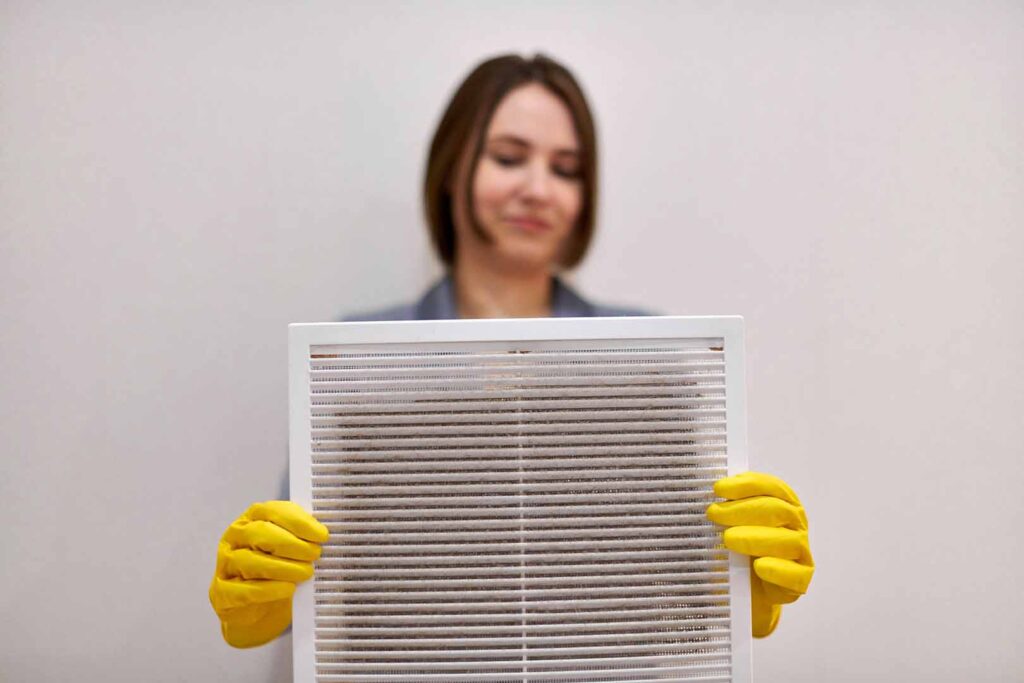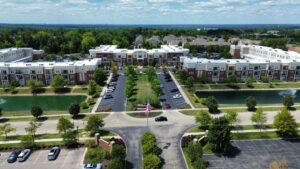
- A clogged filter can cause short cycling, leading to increased wear and tear on your HVAC system.
- Reduced air flow from a dirty filter forces your system to work harder, raising energy costs.
- Regular filter maintenance improves poor efficiency and extends the life of your HVAC system.
Your HVAC system plays a big part in maintaining comfort in your home, but when its air filter gets dirty, it can cause a cascade of problems. A clogged filter restricts airflow, reduces efficiency, and forces your system to work harder than necessary. Over time, this can lead to short cycling, higher energy bills, and even costly repairs. Understanding the effects of a dirty air filter can help you prevent unnecessary strain on your HVAC system and make sure it operates at peak performance.
Why a Clogged Filter Is a Big Problem
Your HVAC system relies on proper airflow to function efficiently. A clogged filter acts as a barrier, preventing clean air from circulating through your home. This causes the system to work harder to push air through, leading to multiple negative effects:
- Increased Energy Usage – When airflow is restricted, the system compensates by running longer and consuming more energy. This results in poor efficiency and higher utility bills.
- Overheating and System Damage – When airflow is blocked, heat can build up in the system, potentially leading to overheating and damage to critical components.
- Poor Indoor Air Quality – A clogged filter can’t effectively trap dust, allergens, and pollutants, which means more contaminants circulate throughout your home.
How a Clogged Filter Causes Short Cycling
One of the most significant issues caused by a clogged filter is short cycling. This happens when your HVAC system turns on and off too frequently without completing a full heating or cooling cycle.
Short cycling occurs because the system overheats due to restricted airflow, forcing it to shut down prematurely. This constant starting and stopping puts extra strain on the system, leading to:
- Increased wear and tear on components
- Higher chances of breakdowns and expensive repairs
- Shortened lifespan of the HVAC system
If your system is short cycling, checking the air filter should be one of the first troubleshooting steps. A clean filter can restore proper function and prevent unnecessary damage.
The Impact of Reduced Air Flow on Your HVAC System
Another major consequence of a clogged filter is reduced air flow. When airflow is limited, your system struggles to distribute conditioned air evenly throughout your home. This can lead to:
- Uneven temperatures, with some rooms feeling too hot or too cold
- Increased humidity levels, making your home feel uncomfortable
- Higher energy consumption as the system needs to work harder to compensate
Regularly tending to your air filter by replacing or cleaning it is the simplest way to prevent reduced air flow and keep your home comfortable year-round.
Poor Efficiency: How a Dirty Air Filter Wastes Energy
Your HVAC system is made to operate efficiently, but a clogged filter can cause poor efficiency, making it work much harder than necessary. When efficiency declines, you’ll notice:
- Higher monthly energy bills
- Longer run times, as the system struggles to heat or cool your home
- Increased carbon footprint due to wasted energy
Replacing your air filter regularly ensures you can improve system performance, reduce energy costs, and minimize your environmental impact.
How Often Should You Change Your Air Filter?
How often you will have to repalce your air filter depends on a few factors, including:
- Household size and pets – Homes with pets or multiple occupants may need filter changes every 1-2 months.
- Allergies and air quality concerns – If you have allergies or live in an area with high pollution, replacing the filter more frequently can improve indoor air quality.
- Type of filter – Higher-quality HEPA filters last longer but should still be checked regularly for buildup.
A good rule of thumb is to check your air filter monthly and change it at least every three months to avoid problems like short cycling, reduced air flow, and poor efficiency.
Protect Your HVAC System with Regular Maintenance
Maintaining a clean air filter is one of the easiest ways to keep your HVAC system running smoothly. However, routine professional maintenance is also essential for catching potential issues early.
At CJS, we provide expert HVAC services to keep your system operating efficiently. Our team can help you choose the right air filter, perform routine inspections, and ensure your home stays comfortable year-round.
Don’t let a clogged filter compromise your comfort. Contact CJS today to schedule HVAC maintenance and keep your system in top shape!





